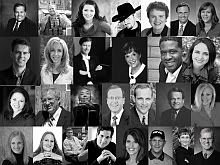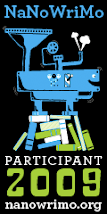Writing Tips
Over the course of many years, I have read and analyzed a lot of different writing styles. I think that if you, as a writer, are happy with the words on your paper then your words are probably good enough and your style is probably good enough too. Being overly critical can stifle creativity, and honestly, I’ve seen some rough writing that was sculpted in such a way that the roughness worked in sweet harmony to produce what I thought was a great result. I recommend that you just write and then think about your writing later. In school, not every English teacher I had liked my style, but that was an expression of their personal notion of what they thought my style should be. I have found that one style does not fit all readers. Opinions are usually free – even educated and credentialed opinions, and sometimes they are worth that price and not a penny more. If you are a creator of sentences, lines and prose, then you have the right to decide what words live or die in your original work. Rules in writing are nice, and often helpful, but they are only guidelines.
As for me, I began earnest writing in 2001. I completed grade 11 English in high school and winged it from there on. During that final semester of school, I took an English placement test and made it into the 98th percentile of all 12th grade students in the province of British Columbia, Canada. I’ve done more than OK. Since 2003, I have authored two books - one autobiography and one adventure novel, with a second adventure novel in the works. As I wrote, my style slowly changed into something I was happy with.
Here are some things that work for me:
- When I read, I pay attention to the writer’s style. Do I like or dislike the writing style? Could the style improve? How? Do I like the style enough to try my own version of it?
- When I hear awesome words, I write them down & try to use them in my writing.
- When I think of or hear cool names, I write them down. I think that character and place names can make or break a story.
- When I think of good story lines or complete plots, I write them down. Sometimes I dream good stories & sometimes I think of plots out of the blue. The important thing I do is to write my thoughts when they're fresh because if I don’t I only can remember that I had a good idea – but what was it?.
- Another thing I do is to consider the styles of other writers, but when I write my own stuff, I just do what feels right to me. After the words are written, then I go back and edit and hopefully improve the flow of the work.
- I write nearly every day, but sometimes it is just in my journal.
- Often, I have only five or ten minutes to work, but I write anyway. I carry my net book with me as often as is practical, but sometimes I use my I-Pod and email my files to myself.
- When I edit, I always read out loud to myself. Using this technique, I tend to catch 99% of grammatical errors on my first edit. I find that "grammar check" doesn't always know how to write. (I use MS Word. I find its grammar/spell check is mostly accurate, but not always.)
- On my second edit, I look at the flow. How long are my sentences? Are they all the same length? How long are my paragraphs? Does each paragraph convey one complete thought? Long paragraphs tend to slow the story, so I try to ensure that the paragraph and sentence lengths match my intended flow pattern.
- On my third edit, I look at my characters. If the story is long, I try to edit the entire manuscript all the way through - one time for each main character and look to see that their voice is consistent with their personality from the beginning to the end.
- On all my edits, I listen for words that don't flow smoothly together - unless I want the words to sound rough for effect. I also look for words that are used too often and find appropriate synonyms to replace them. I pay attention to the mood the work is conveying and adjust as needed. Finally, in my latest writing, I use an outline and build my stories from that framework. I never used to do this, but recently have found it quite useful – especially in light of the fact that I often write for just a few minutes at a time with major interruptions between times. I find an outline helps me get back to the story faster.









2 comments:
Your tips were great, especially coming from an author. I am aspiring to creative writing and have kept a journal for years but now with blogging my creative juices are flowing..it just feels natural to write. Thanks, I'll be following your blog it's very interesting. Chattycat
Thanks for your kind remarks Chattycat. I find, with writing, that the more I do the more I want to do. It's awesome to create words on a page! There's never enough time and perhaps that's what keeps me fascinated, interested and motivated. Keep aspiring!!! I think that's a significant key to the success of every writer.
Post a Comment